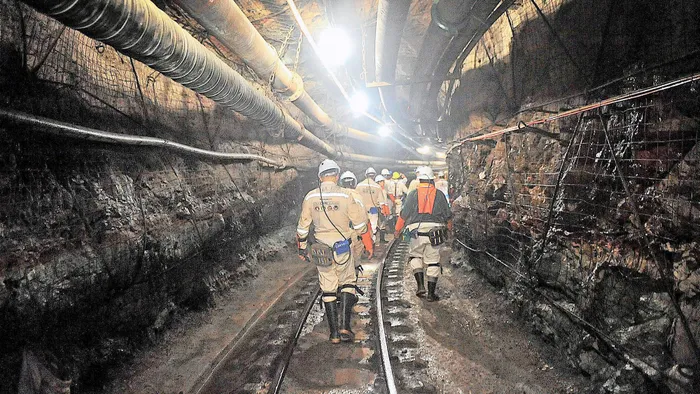Mining industry raises concerns over impact of proposed legislation on investment and jobs
MINING LEGISLATION

The Minerals Council, whose members account for 90% of South Africa’s annual mineral production, lodged its extensive Board-approved submission on the Bill within the 13 August deadline.
Image: Itumeleng English / Independent Newspapers.
The Minerals Council South Africa has raised concerns regarding the recently published Mineral Resources Development Bill, arguing it fails to foster an environment conducive to investment and job creation.
The draft Mineral Resources Development Bill, published for public comment in May until 13 August, aims to transform South Africa's mining industry by strengthening regulations, promoting inclusive growth, and enhancing the legal governance of mineral exploitation.
The Bill addresses various aspects of the mining sector, including artisanal and small-scale mining, transfer of mining rights, and empowerment requirements.
However, concerns remain regarding the impact on agricultural land, investor confidence, and the potential for unintended consequences.
Speaking during a media briefing on Monday, Minerals Council’s CEO Mzila Mthenjane emphasised that the bill, in its current form, cannot drive the necessary transformation and growth that South Africa's mining sector requires.
Mthenjane said it was of fundamental importance for the Minerals Council that the Bill creates certainty, predictability, and a competitive regulatory environment, while eliminating ambiguity in what will become the Act to ensure we build on the successes we have had to date.
“The regulatory environment must be conducive to encouraging investment in exploration, mine development and sustain existing mining operations so that the industry can grow, create jobs and generate the wealth it is capable of delivering for the benefit of all South Africans,” Mthenjane said.
“Our key point of departure in engagements with the Department is to have pragmatic conversations that address elements of the Bill that discourage investment and growth of the industry which we all agree has untapped potential that is not being realised.”
The Minerals Council, whose members account for 90% of South Africa’s annual mineral production, lodged its extensive Board-approved submission on the Bill within the 13 August deadline.
Mthenjane said they will continue to engage with the Department of Minerals and Petroleum Resources on the Bill, adding that they made a submission on time to the department outlining the areas of interest for their members.
“We are positive about our engagement with the department and we are confident they will consider our submissions, along with contributions from other stakeholders, which call for a regulatory environment that is conducive to encouraging investment in exploration, mine development, and also to sustain existing mine operations,” he said.
The need for regulatory clarity is compounded by issues surrounding ministerial discretion, which has previously raised eyebrows. The Council called for a transparent and predictable regulatory framework that can rebuild trust between the mining industry and the department.
One of the primary concerns identified relates to the empowerment provisions embedded in the upcoming bill, which, as of yet, have not been fully revealed through regulations.
While industry officials acknowledge the intent to clarify these provisions by late June, concrete comments on their implications remain elusive.
The removal of requirements for empowerment during the prospecting phase might pave the way for a more inclusive mining environment, yet clarity is crucial for stakeholders to fully grasp their operational impact.
Ursula Brown, head of legal at the Council, said one of the primary concerns identified related to the empowerment provisions embedded in the Bill, which, as of yet, have not been fully revealed through regulations.
Brown said the removal of requirements for empowerment during the prospecting phase might pave the way for a more inclusive mining environment, yet clarity was crucial for stakeholders to fully grasp their operational impact.
“We believe that the content of the empowerment regime that will give effect to the empowerment objectives incorporated in the Bill needs to be settled. At this point in time, we have not seen the regulations, and we believe we're not able to provide any substantive comments on what the empowerment provisions will entail,” she said.
“When it comes to the issue of historical stockpiles, this is obviously a complex issue, and what the bill contemplates is bringing historical stockpiles within the view of the mining legislation. From an industry perspective, the knowledge that these historical stockpiles over the past 72 years have been dealt with as part of property under common law, and our recommendation is to know that the private ownership usage be preserved going forward.”
According to the Council, the implications of the proposed Bill extend to exploration expenditures, which have seen a troubling decline over the years.
The Council said statistics reveal a sharp drop from R6.2 billion in 2006 to merely R781 million in 2023 for mineral exploration in South Africa.
This decline poses a direct threat to the sustainability of the mining industry, emphasising the urgency for a legislative framework that reignites exploration activities—the lifeblood of future mining.
BUSINESS REPORT